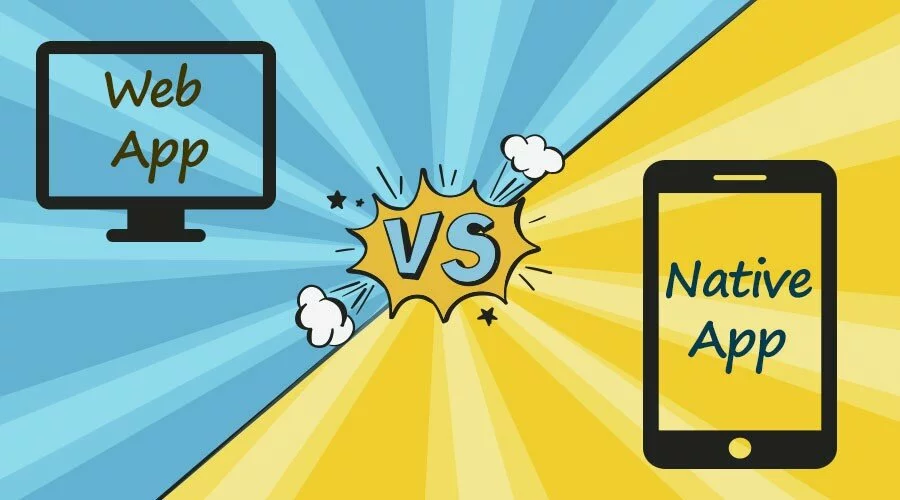
User experience is a major component of mobile app development. The goal of developers has always been to bring a better and efficient experience to users. But hardware specifications have played an important role in the experience that native apps create, due to which smartphones without typical high-performance hardware have been lacking the experience. In response to this, developers turned to develop apps that are not very dependent on hardware and sometimes not even dependent on platform, which gave us hybrid apps, web apps, cross-platform apps etc.
It is often a tough job for developers to determine what kind of app needs to be developed on the basis of client requirements. Neither do the entrepreneurs know much about what kind of app would be feasible for the business structure as well as the budget. In this article, we will look at some of the pros and cons of native apps and web apps, and compare them to help you define your requirements for the kind of app you want your development partner to build for your business.
Performance
Native apps store data locally and can readily access a particular piece of data anytime. There may be some amount of data that native apps may need to run. But in the case of web apps, the entire data is stored on the web or cloud server. This is one of the most significant differences between native and web app, as the performances of the two differ due to the time they take to load data for use. While a native app takes no time to deploy the locally stored data, the web app has to access and extract the file from the web server every time it needs to perform a function.
Distribution
Native apps can be distributed in a systematic manner through app distribution stores. A customer usually can download a native app for free or can purchase it. The two most trusted platforms for distributing mobile apps, Google Play Store and App Store, allow you to optimize your app for better visibility, whereas in case of the web app, there is no particular store where users can find your app. So if your enterprise is already an established one, you may not need to build a native app, as customers will already be knowing about your app and would find it directly via Google search engine. But if you are still trying in the process of building your brand image, native app development is what you should opt for.
Network dependence
Offline functionality is one of the prominent features mobile apps are in demand for. Most of the mobile application developers now build their app with the ability to display the locally stored data even when there is no internet connection. Native apps and hybrid apps can easily be configured to display data in the app’s display window and let users see their activities on the app. On the other hand, as a web app only opens in a web browser, which doesn’t store your data, rather just cache, web apps do not provide offline utility at all. However, this doesn’t mean web apps are inferior to native ones. It depends upon what kind of app you are trying to build and what you are offering to your customers. For instance – an app that allows you to book flight tickets and store them in the app itself in the purchases or orders section, you should better think about getting a native app. But if you are providing a tool like a calculator or a weather app, where there is no point in storing the information, web app would be way a better choice, in terms of utility as well as monetary requirements.
Cost
This section could be a turning point for many as in most of the point that we have discussed above make native apps look like a better choice. Basically, the cost of development of any mobile application depends upon the languages and resources involved in the project. This is where web apps dominate native apps by a clear margin as the languages used in web apps are usually web languages like JavaScript, CSS, HTML, PHP etc., which means faster development, lesser compensation for developers, and ease of testing. Native apps cost way too much compared to web apps as they use mainstream programming languages like Objective C, Java and more, which demands expensive mainstream programmers, slow development process and more intensive testing.
So these were some of the core differences between web and native apps. If you are planning a mobile app that meets what your business demands, make sure you choose wisely whether to develop web or a native app, as this could save you loads of money which you can spend on the marketing of the app. Consulting the best mobile app development companies for a reliable advice can also create a huge impact on how you make a start in the market.
Looking for mobile app development for your Business?
If yes, FuGenX will help you. FuGenX is an award-winning app development company in Muscat, Oman. FuGenX is also emerging Android developer companies in Muscat and also listed in top 10 iPhone app development companies Saudi.
3 Yaers Ago, Thursday, October 11, 2018, 00:32:56
Leave Your Comment